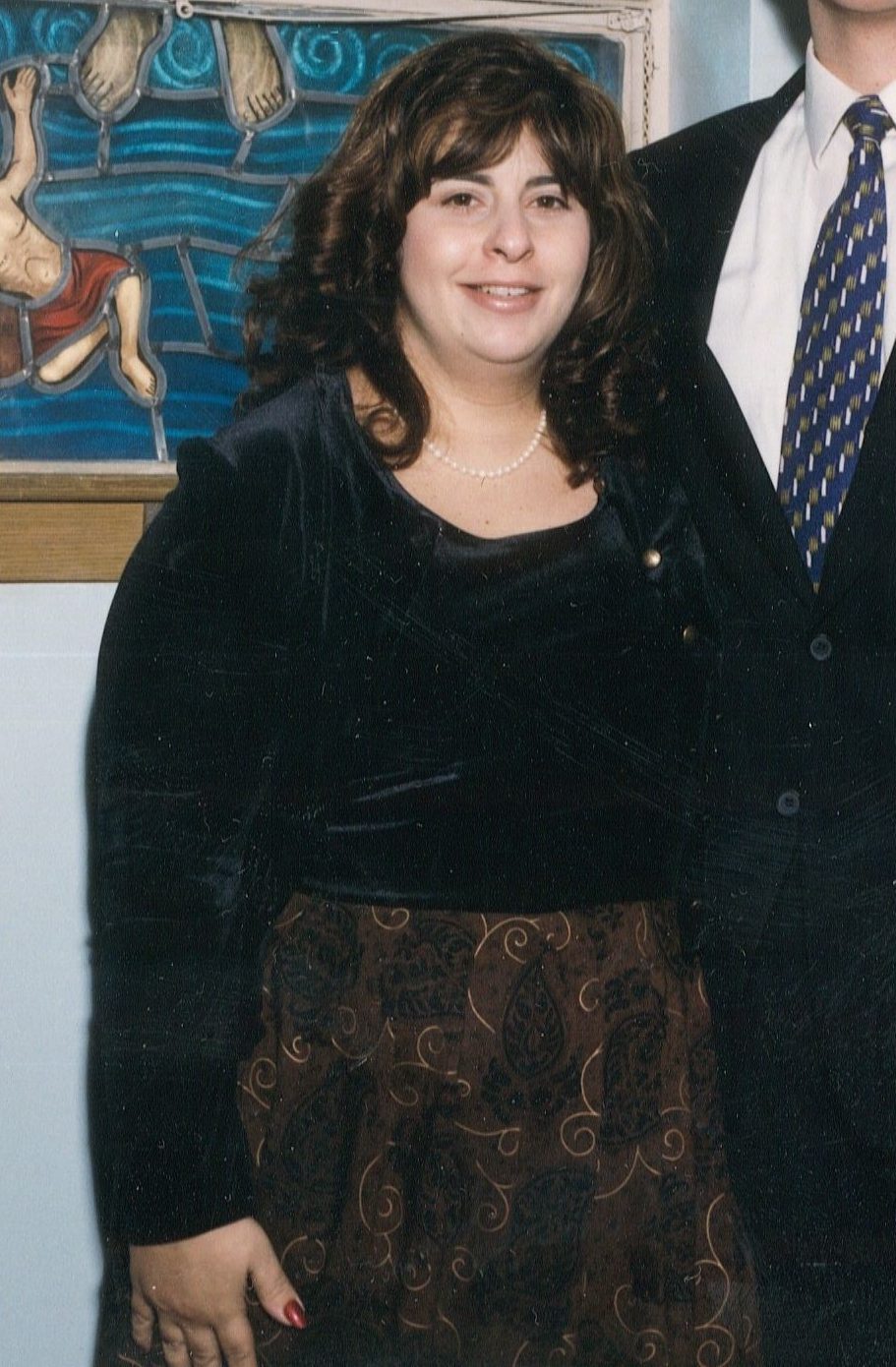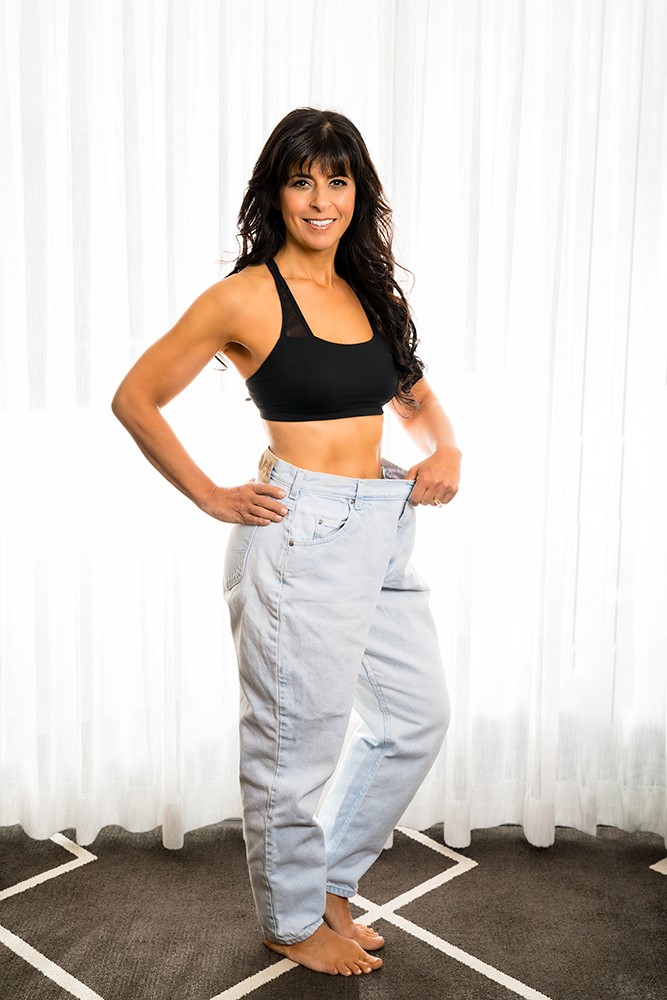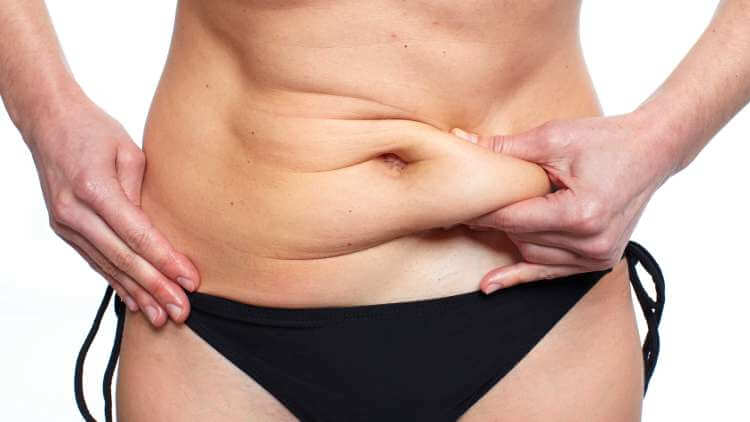There is an undeniable fascination with weight loss success stories. The dramatic before and after transformations are a popular staple in magazines, social media and on television. These success stories continue to be featured in countless mediums; some spark motivation and others simply pique a reader’s curiosity. In recent years, there has been a flurry of articles detailing a “dark side” of weight loss. These articles showcase the “after” photos of people who lost weight only to end up with dramatic loose folds of excess skin.
Before

Having lost and kept off nearly 100 pounds myself, I can tell you that on the heels of “How did you do it?” the second most frequent question I am asked is, “Did your skin sag?” I try to ease people’s fears by clarifying that sagging and excess skin is not necessarily a given byproduct of weight loss and should not be a deterrent to achieving weight loss goals. I explain that my own empirical evidence indicates that a lot of factors contribute to why skin may sag after losing a substantial amount of weight: How long a person has been overweight; how quickly the weight was lost; the type of exercise program used (cardio vs. weight training); and plain old genetics all play a part.
After

Loose Skin: Expert Tips to Prevent It
While sagging skin is a healthier problem to have than being overweight, it can be yet another disincentive for some people to begin a weight loss journey. While I have my opinions from my own experience, I spoke with dermatologists at Clearview Dermatology to gather some expert tips and advice on ways to minimize and help prevent skin sagging. Steven Franks, MD, a Board certified dermatologist, explains that losing fat slowly is key. Dr. Franks goes on to say that “People who lose weight rapidly, either through aggressive dieting, bariatric surgery or because of underlying medical issues are more likely to experience ‘sagging’.”

Surprisingly, an important factor to consider, according to Dr. Franks is the impact and significance of pre-existing chronic sun-related skin damage on how the skin may respond to weight loss. “Places like the face, forearms, arms, thighs and legs tend to droop more rapidly and dramatically than non-sun exposed skin.” Shiu-chung Au, MD, also a board certified dermatologist at Clearview Dermatology, agrees that avoiding sun exposure is crucial. Dr. Au explains that UV exposure will photoage you and he recommends using a broad spectrum sunblock with an SPF of 30 or greater and wearing a wide brimmed hat when you venture outdoors. Dr. Au recommends avoiding indoor tanning as well.
However, the news is not all bad. In addition to beginning regular and aggressive sun-protection as early as possible with the use of clothing and sunscreens, Dr. Franks explains that there are non-surgical treatments that can be helpful. Over the counter retinols may offer some benefit, but prescription retinoids, like Tretinoin and Tazarotene, when used regularly, can be effective to encourage skin rejuvenation and restore damaged collagen and elastic fibers according to Dr. Franks. This, he advises, however, needs to be done consistently over a period of months to years. The stimulation of new collagen growth, Franks continues, “can be achieved with certain lasers, microneedling (my practice at Clearview Dermatology uses and has shown promising results with the Vivace device), and fillers with calcium hydroxyapatite (Radiesse).”
Your Diet & Skin Appearance
Not surprisingly, what you put in, and on your body, can impact your skin’s appearance. Dr. Au recommends stopping smoking and limiting alcohol intake as it tends to dry out the skin. Using a daily moisturizer, ideally one with an SPF of 30 or greater, is also something Dr. Au recommends to his patients. In addition, Dr. Au explains that some dermatologists, like Clearview Dermatology, offer mild skin tightening procedures for loose skin using lasers, ultrasound, or radiofrequency treatments.
When training for a competition, bodybuilders often shed body fat as well and yet present a toned, tight, “shrink-wrapped” appearance on stage. I sought advice from IFBB Pro and Ms. Olympia Champion, Carla Dunlap-Kaan and she shared what has worked for her over the years. Dunlap-Kaan explains that going too low in carbs and fats for too long a period of time, can have a detrimental effect on your hair, skin and other organs. While bodybuilders certainly restrict their diet to prepare for a show or competition, it is not something to sustain as a lifestyle. She also believes eating fish, rich in Omega-3’s, can be beneficial. Dunlap-Kaan also credits her skin’s appearance to dry skin brushing, using a Japanese washcloth when bathing to exfoliate and stimulate circulation and says she ALWAYS uses an emollient moisturizer all over her body. “Oh, and one more thing….” she teased, “choose your parents well!”
Losing weight and getting fit can be challenging enough, don’t let extreme examples of loose skin discourage you. While it is natural to want extra weight to disappear quickly, when it comes to weight loss and skin tone and appearance, remember slow, steady and prepared wins the race!
About the author: Charlene Bazarian is a fitness and weight loss success story after losing 100 pounds. She mixes her no-nonsense style of fitness advice with humor on her blog at Fbjfit.com and on Facebook at FBJ Fit.
Disclaimer
The Content is not intended to be a substitute for professional medical advice, diagnosis, or treatment. Always seek the advice of your physician or other qualified health provider with any questions you may have regarding a medical condition.
